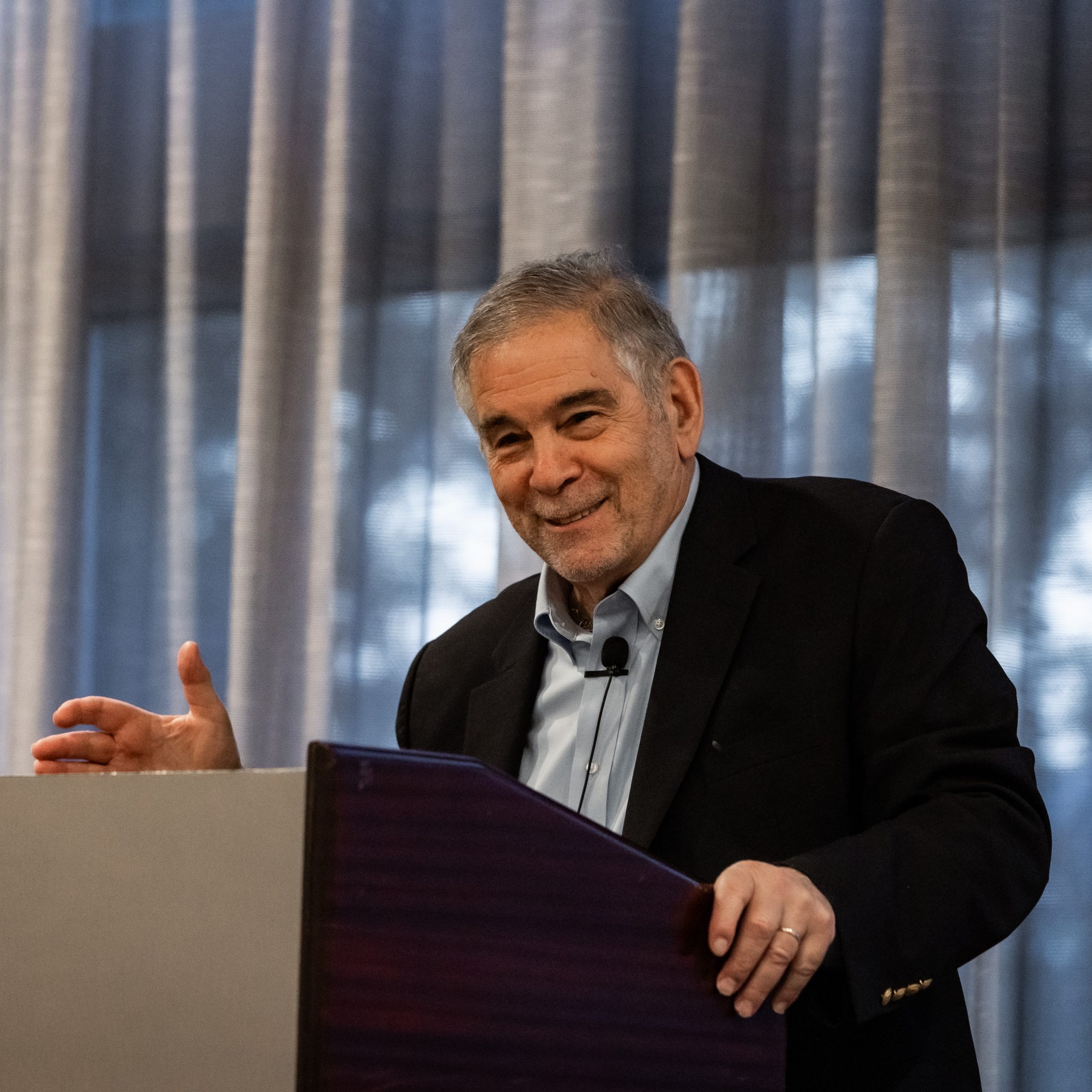Dr. Michael Berenbaum

| Dr. Michael Berenbaum is a writer, lecturer, and teacher consulting in the conceptual development of museums and the development of historical films. He is director of the Sigi Ziering Institute: Exploring the Ethical and Religious Implications of the Holocaust at the American Jewish University (formerly the University of Judaism) where he is also a Distinguished Professor of Jewish Studies.
He was the Executive Editor of the Second Edition of the Encyclopaedia Judaica that reworked, transformed, improved, broadened and deepened, the now classic 1972 work and consists of 22 volumes, sixteen million words with 25,000 individual contributions to Jewish knowledge. For the three years, he was President and Chief Executive Officer of the Survivors of the Shoah Visual History Foundation. From 1988–93 he served as Project Director of the United States Holocaust Memorial Museum, overseeing its creation. He also served as Director of the Jewish Community Council of Greater Washington, Opinion‑Page Editor of the Washington Jewish Week and Deputy Director of the President's Commission on the Holocaust where he authored its Report to the President. Berenbaum is the author and editor of twenty-two books, scores of scholarly articles, and hundreds of journalistic pieces. Over the past several years, Berenbaum was a historical consultant or chief historical consultant for dozens of documentaries and films. |
Critical Thinking Questions:
- Dr. Berenbaum says, “I was surrounded by the Holocaust without ever hearing the name, or understanding the story.” Why do you think Holocaust survivors frequently kept their experiences to themselves rather than sharing them openly?
- Explain what the Wannsee Conference was and why it was significant. What does Dr. Berenbaum say is particularly significant to understand about it?
- Dr. Berenbaum explains that Jan Karski shared firsthand information with leaders of the West, including President Roosevelt, about the mass murder of the Jews in Europe by the Nazis. At the time of his meetings, however, there was an innate resistance in accepting the information that Karski provided. Why do you think Western leaders were hesitant to accept and react to the news that Karski provided? What was the outcome for the Jews of that resistance?
Writing Prompts:
- Write a short essay in which you respond to the following quote from Dr. Berenbaum: “There’s no graphic violence in this but it’s one of the most violent films you can imagine. And all of the violence is in language. Which tells us something very important which is that language can be deeply and profoundly violent.”
- Write a short essay in which you examine the responsibilities and challenges of presenting the Holocaust to the public. How are films and museums used to tell the stories of the Holocaust? What advantages does each have? What materials and artifacts can you use to tell the stories? Why should the Holocaust be presented to the public through films, documentaries, and museums?
- Write a short essay in which you respond to Dr. Berenbaum’s quote, “Sometimes you shout at the world to change the world, and sometimes you shout at the world to make sure it doesn’t change you.” What does he mean by this? And in what ways can individuals become upstanders by practicing this advice?
